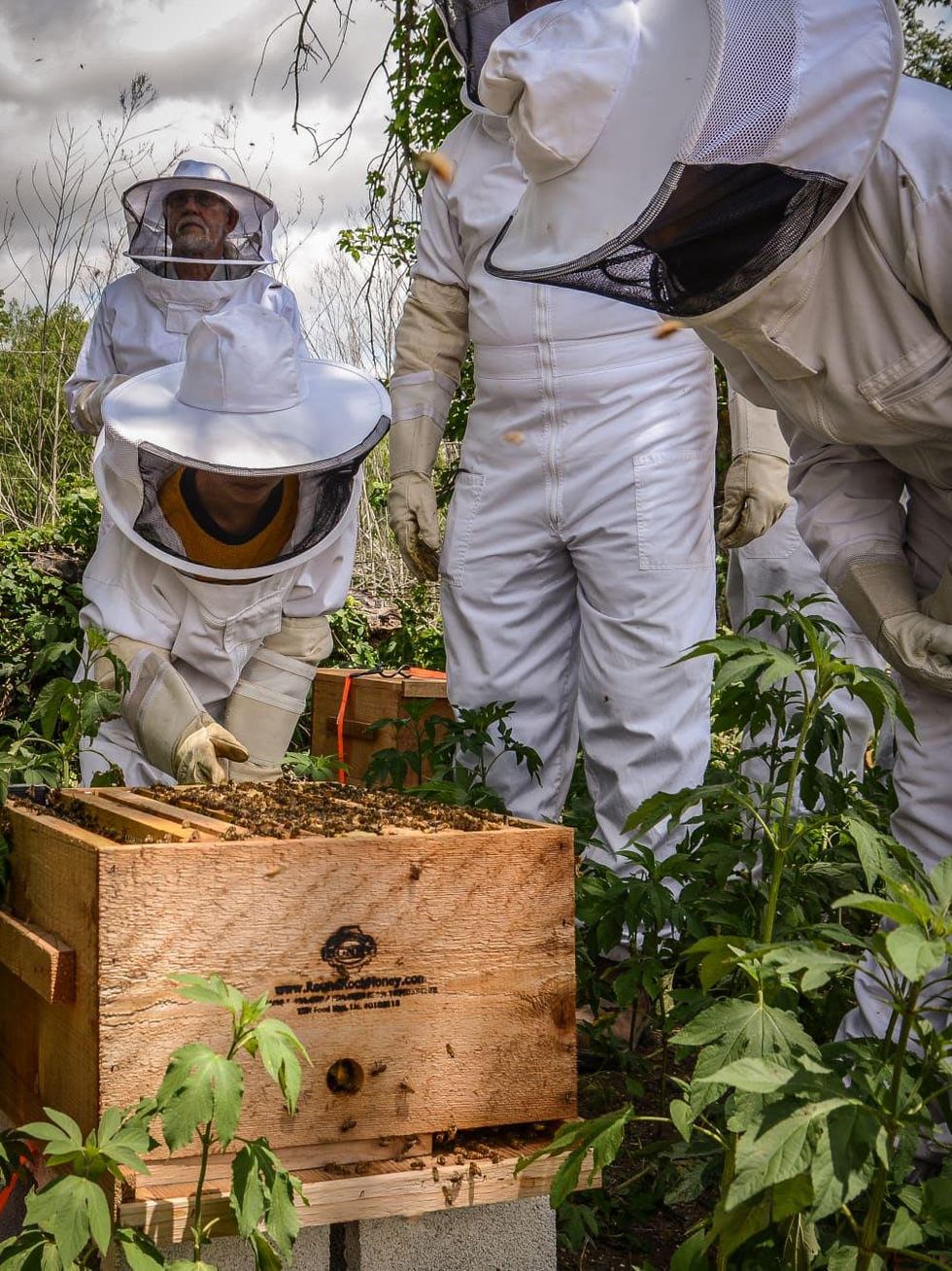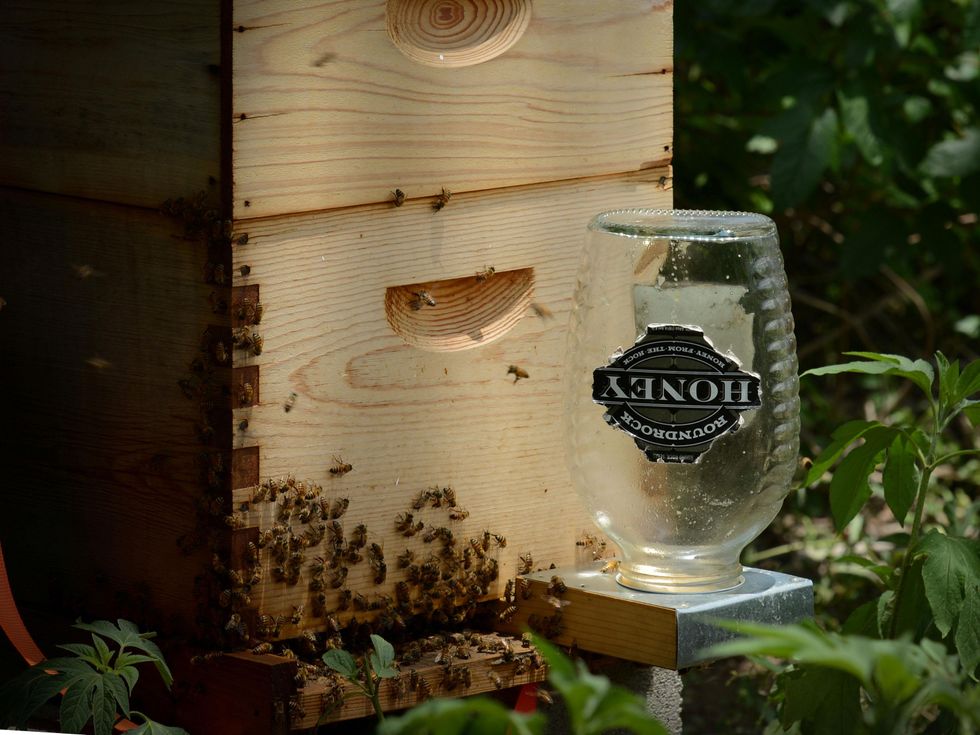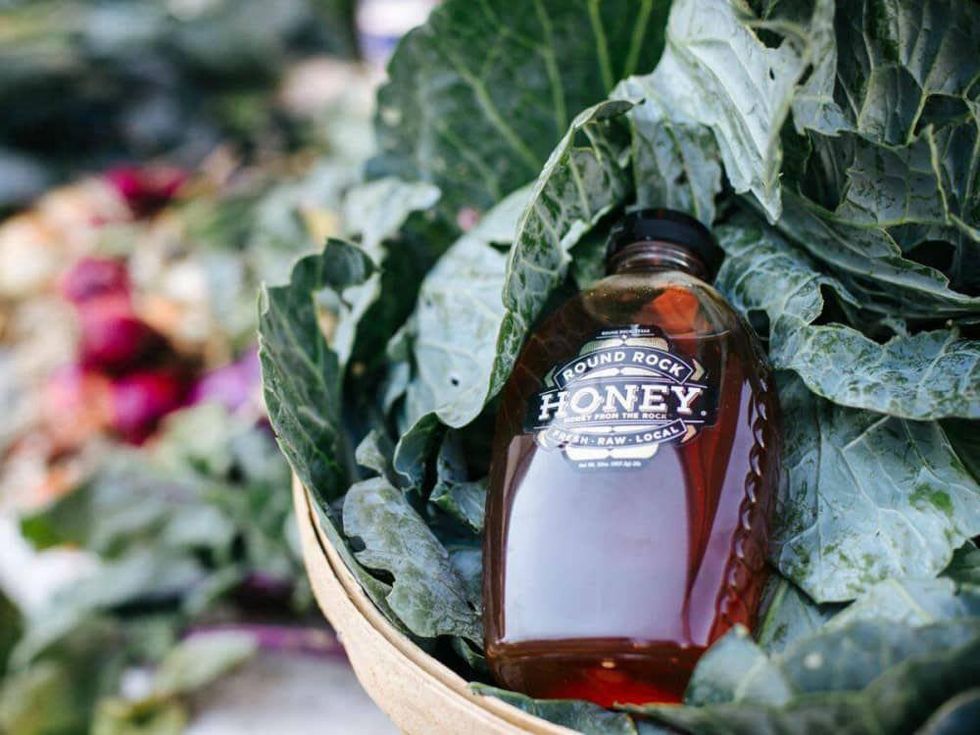The Bee's Knees
Learn to harness the power of bees at Round Rock Honey Beekeeping Academy
If there’s anything harder than keeping a bunch of kids focused in a classroom, it’s handling thousands of honeybees. Fortunately for Konrad Bouffard, the bees — and their honey — pay better, which is why the former public school teacher quit his job and founded Round Rock Honey Company in 2003.
With a focus on raw, pure honey, Round Rock Honey has 90 apiaries, or bee yards, throughout Central Texas, as well as near Dallas, Houston and Waco. The majority is within 50 miles of Round Rock.
For Bouffard, honey is only honey when it stays raw. The pollen is a vital component that most companies lose when they cook the honey.
The class, led by a Master Beekeeper or a beekeeper with at least 10 years of experience, covers the biology of the bee and includes hands-on interaction with the hives.
“We don’t boil or pasteurize our honey,” Bouffard says. “And we test our product more often than any other company in the nation. We show the processes to everyone.”
That testing process means sending it off to the USDA as well as labs in Germany and New Zealand to test for pesticides at levels of seven parts per billion. Any contaminated honey — like the honey that came from an apiary too close to a pesticide-laden cotton field — has to be destroyed to stay in line with Round Rock Honey’s strict standards.
To keep things open with customers, Bouffard puts his name and number on each bottle of honey. He also heads up the Round Rock Honey Beekeeping Academy to educate students about all things beekeeping. The three-hour courses are available year-round in Copper Canyon — about 30 miles northwest of Dallas, in Denton County — as well as other Texas and California spots.
The class is led by a Master Beekeeper (yes, it’s a thing) or a beekeeper with at least 10 years of experience. It covers the basic overview of the biology and lifecycle of the bee and includes hands-on interaction with the hives.
Round Rock Honey uses custom-built Langstroth hives that feature smaller entrances and old cedar found in riverbeds in Oregon and Washington State. They are proudly pesticide free.
Customers get to don beekeeping suits and get up close on the hives as the instructors point out the different types of bees — drone, worker, queen — and explain how the bees operate within the hive.
Bouffard says that the classes show that beekeeping is not as easy as one might think, but it’s also not as complicated. “Just by being there and talking with the beekeeper, you understand the whole picture,” he says. “You see the world of beekeeping in all of its complexities, and it tells you what you don’t know. You can read about bees and still not have a good idea of what it takes to keep an apiary.”
The instructors also help people understand how they can start their own hives, including who to call to get set up with bees and how to work around a pollination calendar.
The Beekeeping Academy takes place twice a month on Saturdays, from 10 am to 1 pm, for ages 7 and up. (The next class is this Saturday, June 15.) There is a dress code that not surprisingly requires you to cover up pretty much all over. You know, because of the bees.



